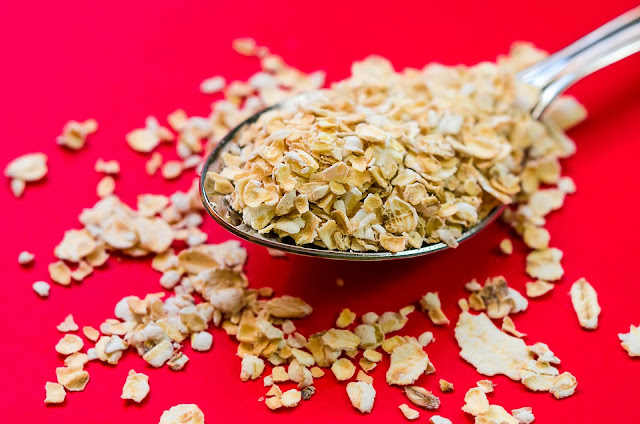Whole grains are often hailed as a key component of a balanced diet, but what exactly makes them so special? Unlike refined grains, whole grains retain their bran, germ, and endosperm, which means they pack a punch in terms of flavor, texture, and nutrition. From hearty oats to nutty quinoa, whole grains are versatile ingredients that can elevate a variety of dishes. Let’s delve into the benefits of whole grains and discover why you might want to incorporate them into your meals.
---
1. What Are Whole Grains?
Whole grains include any grain that is unrefined and contains all parts of the grain kernel. Common examples of whole grains include:
*Brown Rice: A nutritious alternative to white rice, brown rice retains its bran and germ, offering a chewy texture and a nutty flavor.
*Quinoa: Often classified as a grain, quinoa is technically a seed. It’s gluten-free and packed with protein, making it a favorite for salads and bowls.
*Oats: Rolled or steel-cut oats are excellent for breakfast and can be used in baking, providing a hearty texture and a wealth of nutrients.
*Whole Wheat: Whole wheat flour is made from the entire wheat kernel, making it a better choice than refined white flour for baked goods.
*Barley: This chewy grain is rich in fiber and can be used in soups, stews, and salads.
---
2. Nutritional Benefits of Whole Grains
Whole grains offer a variety of nutritional benefits that contribute to overall well-being:
*Fiber-Rich: Whole grains are an excellent source of dietary fiber, which supports digestive health and helps maintain a feeling of fullness.
*Vitamins and Minerals: Whole grains are packed with essential nutrients such as B vitamins, iron, magnesium, and selenium. These nutrients are vital for energy production, immune function, and overall vitality.
*Antioxidants: Many whole grains contain antioxidants that can help combat oxidative stress in the body.
*Lower Glycemic Index: Whole grains typically have a lower glycemic index compared to refined grains, meaning they can lead to more stable blood sugar levels.
---
3. Health Benefits of Incorporating Whole Grains
a. Digestive Health:
The fiber found in whole grains aids digestion and can help prevent constipation. A fiber-rich diet supports a healthy gut microbiome, which is linked to various aspects of health.
b. Heart Health:
Research suggests that whole grains can contribute to heart health by reducing cholesterol levels and lowering blood pressure. Their high fiber content is particularly beneficial for cardiovascular well-being.
c. Weight Management:
Whole grains may aid in weight management by promoting satiety. The fiber and nutrients in whole grains can help control hunger and support balanced eating patterns.
d. Blood Sugar Control:
The slower digestion of whole grains compared to refined grains can help maintain stable blood sugar levels. This is beneficial for those looking to manage their energy levels throughout the day.
---
4. Easy Ways to Incorporate Whole Grains into Your Meals
Adding whole grains to your meals is easier than you might think. Here are some simple ideas:
*Breakfast Options: Start your day with a warm bowl of oatmeal topped with fruits and nuts, or try a quinoa breakfast bowl with yogurt and berries.
*Side Dishes: Substitute white rice with brown rice or quinoa as a side dish. Add herbs and spices for extra flavor.
*Salads: Incorporate cooked barley or farro into salads for a nutty flavor and chewy texture.
*Baking: Use whole wheat flour in your baking recipes. It can easily replace all-purpose flour in most baked goods.
*Snacks: Choose whole grain crackers or popcorn as a healthy snack option. Pair them with hummus or guacamole for added taste.
---
5. Tips for Choosing and Storing Whole Grains
*Look for Labels: When shopping, check the ingredient list for terms like “100% whole grain” or “whole wheat” to ensure you’re getting the real deal.
*Store Properly: Whole grains should be stored in a cool, dark place to maintain freshness. Airtight containers can help prevent spoilage.
*Experiment: Don’t hesitate to try different whole grains to find your favorites. Each grain has its own unique flavor and texture that can enhance various dishes.
---
Embrace the Richness of Whole Grains
Whole grains are not just a nutritious choice; they are also a delicious addition to any meal. Their versatility allows for countless culinary possibilities, from hearty breakfasts to satisfying dinners. By exploring the world of whole grains, you can enjoy a range of flavors and textures while benefiting from their nutritional advantages. So, why not give whole grains a try and discover the rich, wholesome goodness they bring to your table?
---
Sources:
- **Harvard T.H. Chan School of Public Health:** [www.hsph.harvard.edu](https://www.hsph.harvard.edu)
- **Mayo Clinic:** [www.mayoclinic.org](https://www.mayoclinic.org)
- **Whole Grains Council:** [www.wholegrainscouncil.org](https://www.wholegrainscouncil.org)












No comments:
Post a Comment